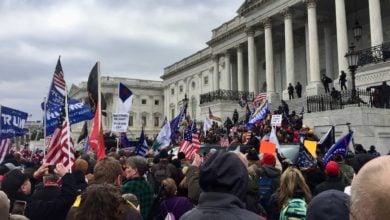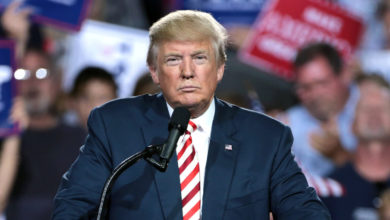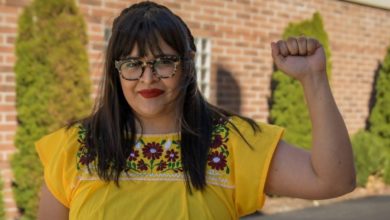Gloria La Riva is the 2016 presidential candidate of the Party for Socialism and Liberation. Click here to learn more about the campaign.
In case the result of the popular vote displeases the Democratic Party elite, a unique trick kicks in to keep the establishment in control. It is called super delegates, and they are already weighing heavy and early in the primaries.
Like the general election itself, the winner is not ultimately decided by the popular vote. The nominee is selected by delegates to the Democratic National Convention in July.
Most voting attendees at the national convention are “pledged” delegates who were chosen through a primary vote or caucus, but there are also super delegates. Super delegates include all Democratic governors and congress members, who are granted a special vote at the convention that has nothing to do with a primary election.
This system was implemented after the 1972 primary was won in an upset by George McGovern, who ran on an anti-war platform. The Democratic Party sat on its hands in that general election, effectively handing the presidency to Richard Nixon.
Super delegates can cast their vote for whomever they wish. Thus, they can tip the election regardless of the delegates representing the primary election results.
About one in every five delegates to the Democratic National Convention is a super delegate. That means a candidate who wants to win the nomination without the support of the party leadership needs to get approximately 63 percent of the delegates assigned by the popular vote! This may have tremendous consequences in the current primary contest, which has evolved into a virtual dead heat between Hillary Clinton and Bernie Sanders.
Will Clinton steal the nomination?
Bernie Sanders has shaken the status quo within the Democratic Party. His tax-the-rich proposals have shocked the 1%, and inspired people on the other end of the income scale who are mobilizing by the millions for Sanders.
On Feb. 1 in the Iowa caucus, he came within two-tenths of a percentage point to Hillary Clinton.
On Feb. 9, he slammed Clinton with 60 percent of the vote to her 38 percent.
In a state thought to be a sure thing for Clinton, Sanders came within 3 percentage points of victory in the Feb. 20 Nevada Caucus.
And though Sanders’ New Hampshire popular vote won him 15 delegates to Clinton’s 9, she ended up tying Sanders 15-15.
How could that be? Simple, six of the eight super delegates in New Hampshire are supporting her, and the other two are undecided.
Even more astounding: Clinton has 436 super delegates committed to voting for her in the Democratic Party convention out of a total of 712 super delegates.
Sanders has 17 super delegates. He is one of those 17.
Super delegates include Democratic governors, senators, representatives, and all 447 members of the leadership Democratic National Committee.
There are 259 super delegates who have not committed their vote yet. Still, the overwhelming majority goes to Clinton, regardless of the primary votes.
If the Clinton political machine steals the nomination from Sanders at the convention, we urge his supporters to reject such a blatant insult to democracy. I am running along with Eugene Puryear as the Party for Socialism and Liberation’s candidate for president—join us in this campaign and in the struggle in the streets against the billionaire class!






